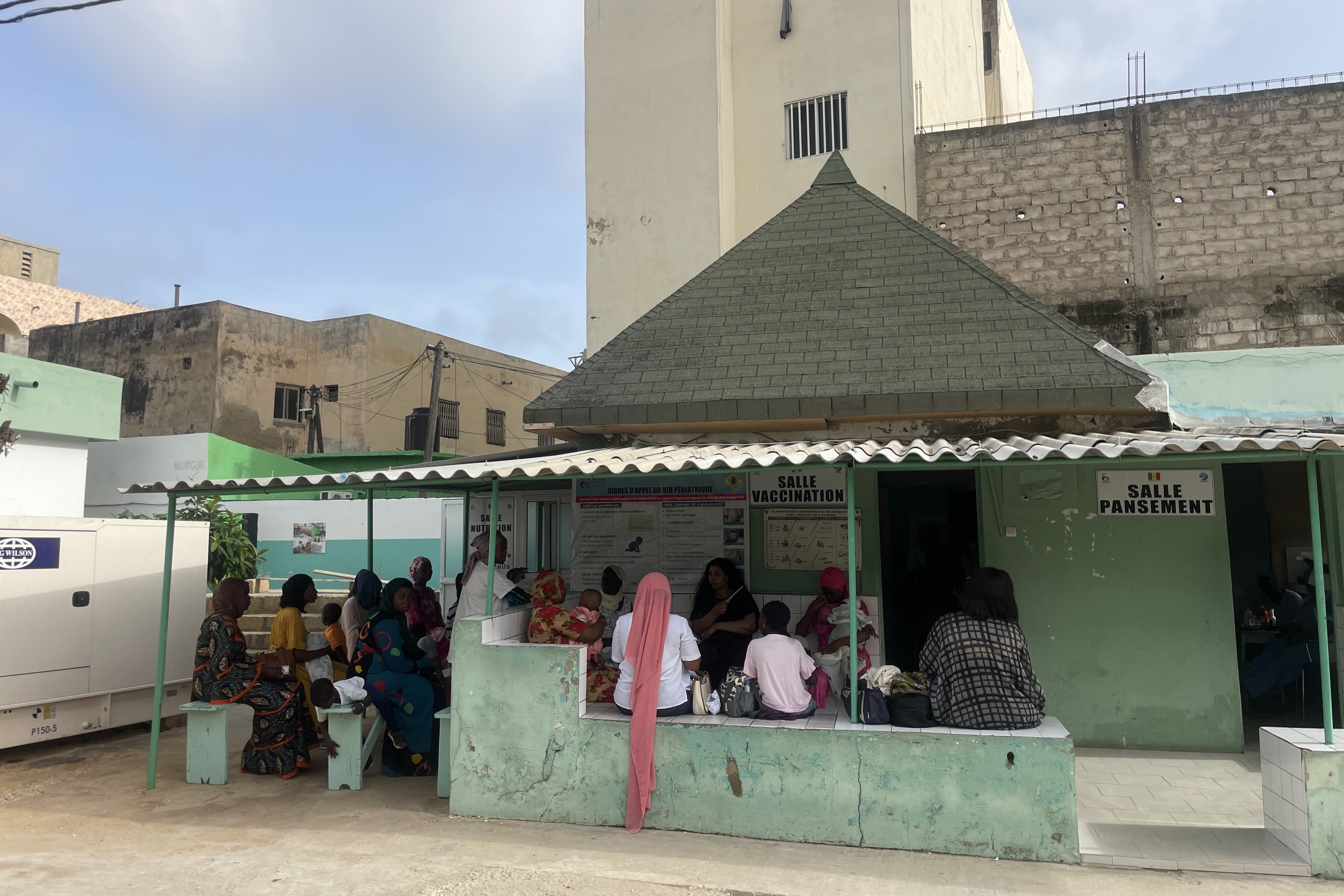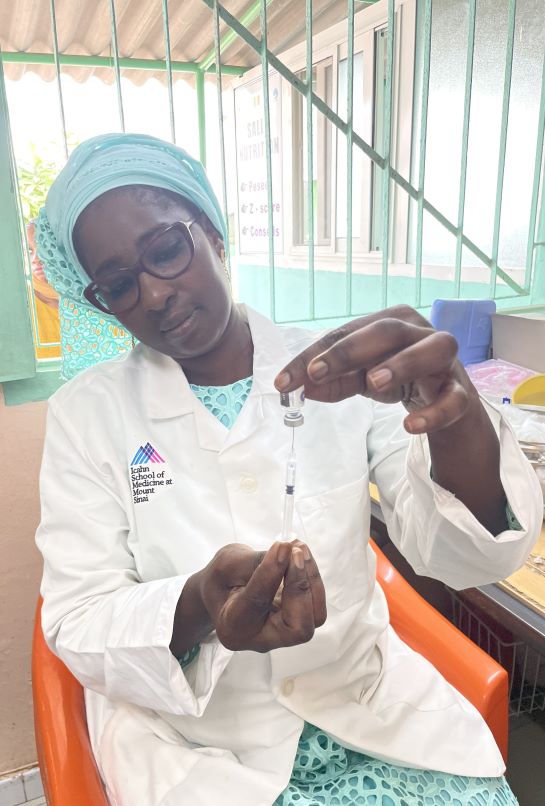Senegal rolls out “six-in-one” jab, making life easier for families and health workers
The hexavalent vaccine – introduced into Senegal’s routine vaccination schedule in July – protects kids against six diseases with a single shot. That means fewer injections for babies, fewer clinic visits for parents, and a lighter workload for health staff.
- 16 September 2025
- 5 min read
- by Allison Fernandes

At the Philippe Maguilene Senghor health centre in the busy Yoff district of Dakar, a dozen women with babies in their arms wait under a shelter by the vaccination room.
Among them is Sokhna Sylla. Her second child, just over two months old, is here for his second dose of the hexavalent vaccine – a single injection that protects against six diseases: tetanus, diphtheria, whooping cough, polio, hepatitis B and Haemophilus influenzae type b. This new combined vaccine was introduced into Senegal’s national immunisation programme on July 1.
It’s a “relief” for this mother, whose older son was immunised under the old system, receiving the pentavalent and IPV vaccines separately. “On the left leg, we had to inject twice,” explains Aminata Laye Diagne, a state auxiliary nurse in the vaccination room. “Parents were often shocked. The baby would cry. We’d inject, then inject again in the same leg. It was hard to do that to a one-month-old! Even older children would find it difficult.”
Better acceptance among parents
That experience often left parents anxious about future vaccinations. “Some even refused to come back because of the number of injections their baby had to endure,” recalls Fama Faye, a Badiene Gox – a respected community “godmother” who supports families in her neighbourhood. Part of her role as a community health worker is to persuade parents to make sure their children are fully immunised, helping to keep them up to date with the immunisation schedule.
She believes reducing the number of injections not only makes parents more willing to participate, but also helps them stick to the schedule: “Some parents cannot read. There are realities that are hard to imagine, but we Badienou Gox know them well because we are out in the community. So with fewer appointments, it’s much easier to keep track.”

This morning, the vaccination unit at the health centre is moderately busy. But on some days, staff may see up to 90 children in a single morning. Reducing the number of injections also means fewer syringes and a lighter workload for health workers, who are often overstretched. “The arrival of the hexavalent vaccine has made our job easier. We save syringes and time,” says state auxiliary nurse Aminata Laye Diagne with relief.
That view is shared by the centre’s head doctor, Abdoukarim Diop. “Before, there were many appointments and some mothers couldn’t always make it. Women working in the market, for instance, can’t afford to be away – their income depends on daily earnings. They must provide food for their families each day, so they can’t take time off to attend every appointment.”
Logistical challenges in rural areas
Before working in the capital, Dr Diop spent eight years in the rural commune of Vélingara, in Casamance in the country’s south. “There, it’s even harder. Sometimes you have to walk several kilometres to reach a vaccination centre. For parents, just making the journey is a challenge,” he says. He adds another concern: “Mobility is also a barrier to vaccination. During the rainy season, women from rural areas often leave the city to return to their villages and work in the fields. There, they can’t get their children vaccinated, which interrupts the schedule.”
Pour aller plus loin
Reducing the number of doses helps ease these challenges while also cutting logistical constraints – less visible in the capital, but considerable in remote areas. “For years we haven’t had stock shortages here in Dakar. We have the equipment, refrigerators and electricity needed to keep vaccines safe. And the central district depot is only 500 metres from the health posts. But in rural areas that distance can be up to 15 kilometres, and the equipment is not always there. It can be difficult to maintain the cold chain,” the doctor notes. In such a context, the hexavalent vaccine offers a real advantage.
Information remains key
Tetanus, diphtheria, whooping cough, polio, hepatitis B and Haemophilus influenzae type b are still present in Senegal, even if cases have fallen sharply. Maty Niang Seck, grandmother of 15-month-old twins, says she has seen people affected by whooping cough and polio. This morning, she feels “reassured” after bringing her grandchildren to the health centre for their booster dose.
Alioune Diatta, communications officer at the health centre, expects to see an increase in vaccine coverage, as well as in the support of parents and health staff, as a consequence of the combo vaccine’s introduction. For him, information is crucial. “We explained what the hexavalent vaccine is through local media, organised discussions with women’s groups and carried out awareness caravans in the district using a sound truck.
“It’s another step forward for public health,” says Diatta.
This story was translated from the French. Read the original here





